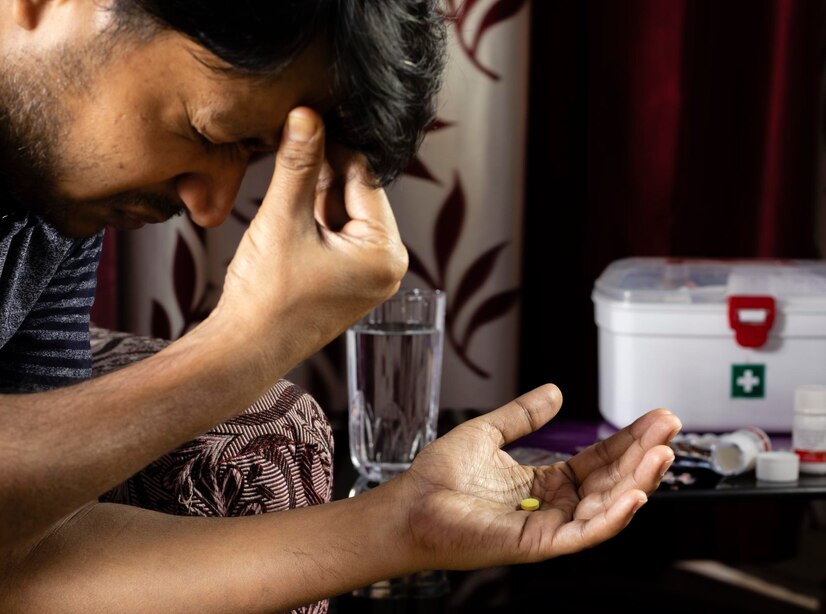In the journey toward recovery, the path can often feel isolating and overwhelming. Navigating the complexities of addiction and mental health issues requires a multi-faceted approach, and one of the most impactful components is group therapy. At All American Detox, we believe that the power of shared experiences plays a pivotal role in fostering recovery. Group therapy is not just a treatment modality; it’s a vital community where individuals can find understanding, support, and the strength to overcome challenges together. This article delves into the unique benefits of group therapy, how it functions within a structured recovery program, and its indispensable role in the healing process. By examining these aspects, we aim to highlight how group therapy can provide the emotional support and sense of community essential for sustained recovery.
Contact Us for Detox Services
The Benefits of Group Therapy
Group therapy, as offered at All American Detox, provides a myriad of benefits that significantly contribute to the recovery process. By engaging individuals in a shared healing journey, group therapy leverages the collective strength and wisdom of its participants to foster meaningful change. Here are some of the key benefits:
Emotional Support
One of the most immediate and palpable benefits of group therapy is the emotional support it provides. In a group setting, individuals have the opportunity to express their feelings, fears, and hopes in a safe and supportive environment. This emotional sharing can be profoundly therapeutic as it allows members to feel heard and understood. The collective empathy and understanding from peers who are navigating similar challenges can be incredibly comforting. This support network helps to alleviate feelings of isolation and loneliness, which are common in those undergoing recovery.
Sense of Belonging
A sense of belonging is another critical benefit derived from group therapy. In a world where stigma and misunderstanding about addiction and mental health issues can often lead to social alienation, group therapy offers a sanctuary where individuals can find acceptance. Being part of a group where everyone is working towards similar goals fosters a feeling of inclusion and community. This sense of belonging can enhance self-esteem and provide a solid foundation for personal growth and recovery. It reassures individuals that they are not alone and that their struggles are shared by others, creating a powerful bond among group members.
Shared Experiences
The power of shared experiences in group therapy cannot be overstated. When individuals come together to discuss their journeys, they often find that their experiences, while unique, have common threads. These shared narratives can provide valuable insights and coping strategies that might not have been discovered in isolation. By listening to others’ stories, group members can gain perspective on their own experiences, learn new ways to handle challenges, and find hope in the progress and successes of their peers. Shared experiences also help to normalize the recovery process, making it easier for individuals to accept their own struggles and triumphs as part of a larger, collective journey.
In summary, group therapy at All American Detox offers essential benefits that support the emotional well-being of its members, foster a strong sense of community, and leverage shared experiences to enhance the recovery process. These elements work together to create a robust framework for healing and growth.
How Group Therapy Works
Group therapy is a cornerstone of the therapeutic process at All American Detox, offering a structured yet flexible environment where individuals can come together to support one another in their recovery journeys. This section will delve into the mechanics of group therapy and how it functions to provide a robust framework for healing and personal growth.
Structured Sessions
Group therapy sessions at All American Detox are meticulously planned to ensure they address the diverse needs of participants while maintaining a focus on recovery. These sessions are typically held at regular intervals, creating a consistent schedule that participants can rely on. Each session follows a structured format that includes opening remarks, individual check-ins, themed discussions, and closing reflections. This structure helps participants feel secure and know what to expect, which is particularly important in the often unpredictable journey of recovery. The planned nature of these sessions also allows for the incorporation of various therapeutic techniques, such as cognitive-behavioral therapy (CBT), mindfulness practices, and psychoeducation, all aimed at fostering recovery and resilience.
Facilitator Role
A skilled facilitator is crucial to the success of group therapy. At All American Detox, facilitators are trained professionals who guide the group through its sessions while maintaining a safe and supportive environment. They are responsible for setting the tone of the meetings, ensuring that everyone has a chance to speak, and keeping the discussions productive and respectful. Facilitators also help to manage any conflicts that may arise and provide professional insights that can help participants better understand their experiences and emotions. By fostering an atmosphere of trust and openness, facilitators enable participants to share their thoughts and feelings without fear of judgment, which is essential for meaningful therapeutic progress.
Group Dynamics
The dynamics of the group play a pivotal role in the effectiveness of therapy. In group therapy at All American Detox, participants come from various backgrounds and stages of recovery, contributing to a rich tapestry of experiences and perspectives. This diversity enhances the learning process as group members can offer unique insights and support to one another. The interaction between group members often leads to the development of strong interpersonal bonds, which can be incredibly therapeutic. These relationships provide a network of support that extends beyond the therapy sessions, helping individuals to feel connected and understood. The collective energy of the group can also motivate participants to stay committed to their recovery goals, as they see the progress and determination of their peers.
In summary, the structure, facilitator role, and group dynamics are all integral components that make group therapy at All American Detox a powerful tool for recovery. Through regular, organized sessions led by skilled facilitators and enriched by the diverse experiences of its members, group therapy offers a unique and effective approach to healing.

The Role of Group Therapy in Recovery
Group therapy plays a pivotal role in the recovery process, offering a unique set of benefits that individual therapy may not fully provide. It harnesses the collective strength of shared experiences and mutual support, which significantly contributes to the recovery journey. Here’s how group therapy aids in this critical phase:
Building Trust
One of the fundamental aspects of group therapy is the creation of a safe and trusting environment. Participants often enter recovery with feelings of vulnerability and apprehension. In a group setting, individuals can witness others sharing their stories and struggles, which helps to build a foundation of trust. This shared vulnerability fosters a supportive atmosphere where participants feel more comfortable opening up about their own experiences. Trust is a cornerstone of recovery, and group therapy provides a structured yet intimate space for this trust to develop organically.
Learning from Others
In group therapy, the opportunity to learn from others is immense. Participants come from diverse backgrounds and bring varied perspectives on recovery. This diversity enriches the group experience, as members can gain insights and coping strategies that they might not encounter in individual therapy. Hearing about others’ challenges and successes can offer new ways of thinking and alternative approaches to dealing with similar issues. This collective wisdom can be incredibly empowering, as it broadens the understanding of recovery and provides practical tools for personal growth.
Accountability
Accountability is another crucial element that group therapy introduces into the recovery process. In this setting, individuals are not only accountable to themselves but also to the group. Regular attendance and participation in group sessions create a sense of responsibility and commitment. Knowing that others are invested in their progress can motivate participants to adhere more closely to their recovery plans. This mutual accountability helps to maintain momentum and ensures that members remain focused on their recovery goals.
In summary, group therapy at All American Detox is integral to the recovery journey. It builds trust, fosters learning through shared experiences, and instills a sense of accountability among participants. These elements work together to create a supportive and dynamic environment that significantly enhances the recovery process.
The Power of Shared Experiences in Recovery at All American Detox
Group therapy stands as a cornerstone in the journey of recovery at All American Detox, offering a unique blend of emotional support, shared experiences, and a sense of community that individual therapy alone may not provide. By participating in group sessions, individuals are enveloped in a nurturing environment where they can openly discuss their struggles and triumphs, knowing they are not alone in their journey. The structure of these sessions, guided by skilled facilitators, ensures that each member has the opportunity to contribute and benefit from the collective wisdom of the group.
In the context of recovery, the power of shared experiences cannot be overstated. Group therapy allows individuals to build trust, learn from others, and hold themselves accountable in a supportive setting. This communal approach not only aids in the healing process but also fosters a sense of belonging and mutual understanding that can be pivotal for long-term sobriety.
Ultimately, group therapy at All American Detox is more than just a treatment modality; it is a lifeline for individuals seeking to rebuild their lives with the support of a caring community. By embracing the collective strength of the group, participants can navigate the complexities of recovery with resilience and hope, paving the way for a healthier, more fulfilling future.
FAQs
- Q: What is group therapy, and how does it benefit those in recovery? A: Group therapy is a form of therapy where individuals in recovery come together to share their experiences, challenges, and triumphs in a supportive and judgment-free environment. It offers a sense of community, promotes empathy, and provides valuable insights and perspectives from peers who have faced similar struggles.
- Q: How does group therapy help individuals in recovery? A: Group therapy helps individuals in recovery by fostering a sense of belonging, reducing feelings of isolation, and promoting personal growth. It enables participants to learn from one another, gain coping skills, develop healthy relationships, and find support throughout their recovery journey.
- Q: What topics are discussed during group therapy sessions at All American Detox? A: Group therapy sessions at All American Detox cover a range of topics related to addiction, recovery, relapse prevention, coping strategies, self-care, and personal growth. The exact topics may vary depending on the needs and dynamics of the group.
- Q: Are group therapy sessions only for individuals with substance use disorders? A: While group therapy is commonly utilized in substance use disorder treatment, it can also be beneficial for individuals with other mental health challenges. All American Detox offers group therapy sessions that cater to various needs, including substance use disorders, co-occurring disorders, and other mental health concerns.
- Q: How many people typically participate in a group therapy session at All American Detox? A: The number of participants in a group therapy session at All American Detox may vary, but typically ranges from 6 to 12 individuals. This size allows for meaningful interaction, support, and the opportunity to share experiences effectively.
- Q: Can group therapy replace individual therapy in the recovery process? A: Group therapy is an essential component of the recovery process, but it is not intended to replace individual therapy. Both forms of therapy offer unique benefits, and a comprehensive treatment plan often includes a combination of individual and group sessions to address the diverse needs of individuals in recovery.
- Q: How long do group therapy sessions typically last at All American Detox? A: Group therapy sessions at All American Detox typically last around 60 to 90 minutes. The duration may vary depending on the specific group and session content.
- Q: Is participation in group therapy mandatory at All American Detox? A: While participation in group therapy is highly encouraged and beneficial, it is not mandatory at All American Detox. The treatment team recognizes that individual preferences and needs may vary, and they work with each client to develop a personalized treatment plan that aligns with their goals and preferences.
- Q: Can group therapy help individuals build a support network during recovery? A: Absolutely. Group therapy provides an opportunity for individuals to connect with others who have shared experiences and understand the challenges of recovery. It helps build a supportive network of peers who can provide encouragement, guidance, and accountability, both during and after treatment.
- Q: How can I join a group therapy session at All American Detox? A: To join a group therapy session at All American Detox, you can reach out to our admissions team. They will guide you through the intake process, assess your needs, and help you find a group therapy session that aligns with your goals and schedule.



















